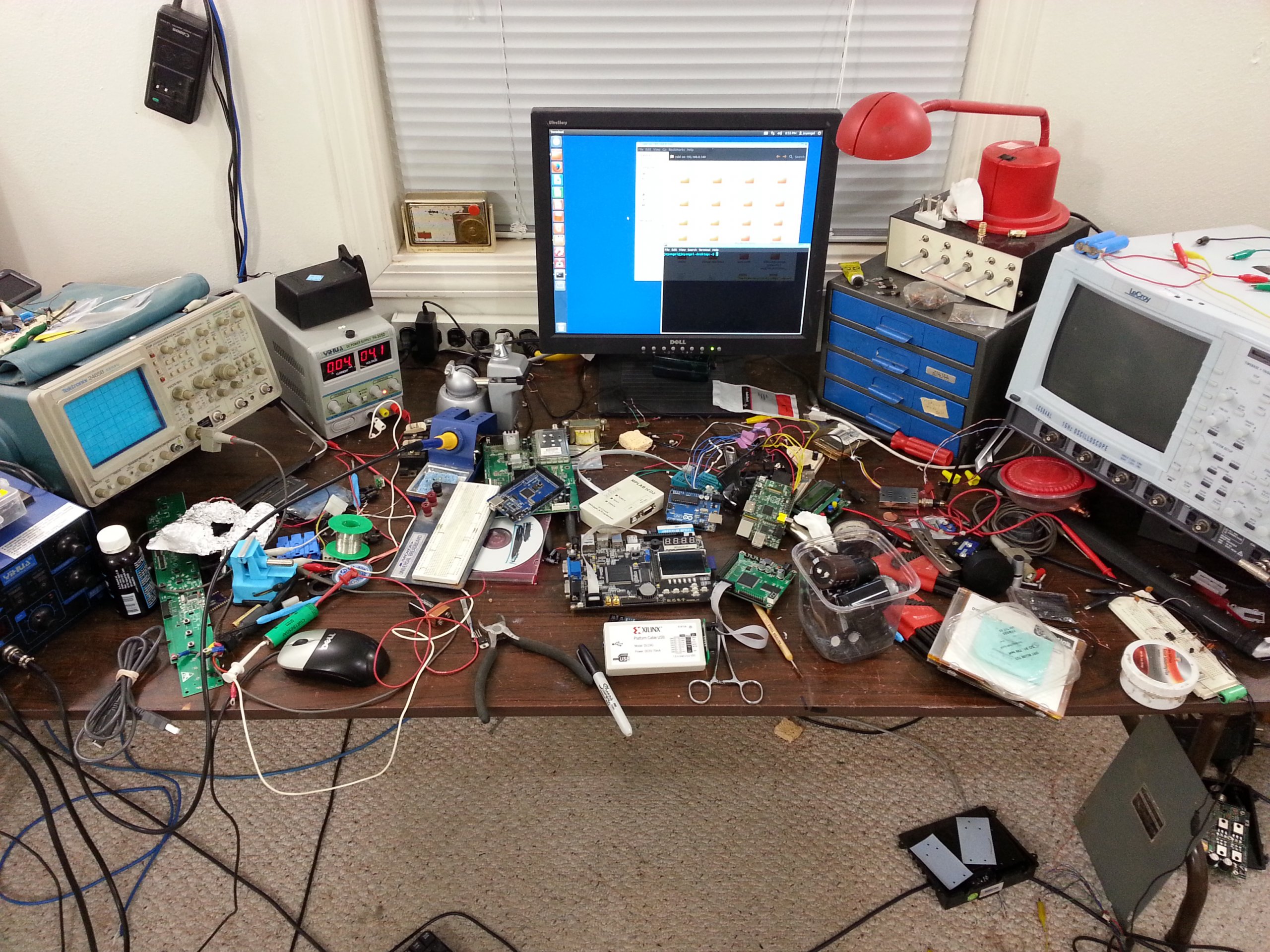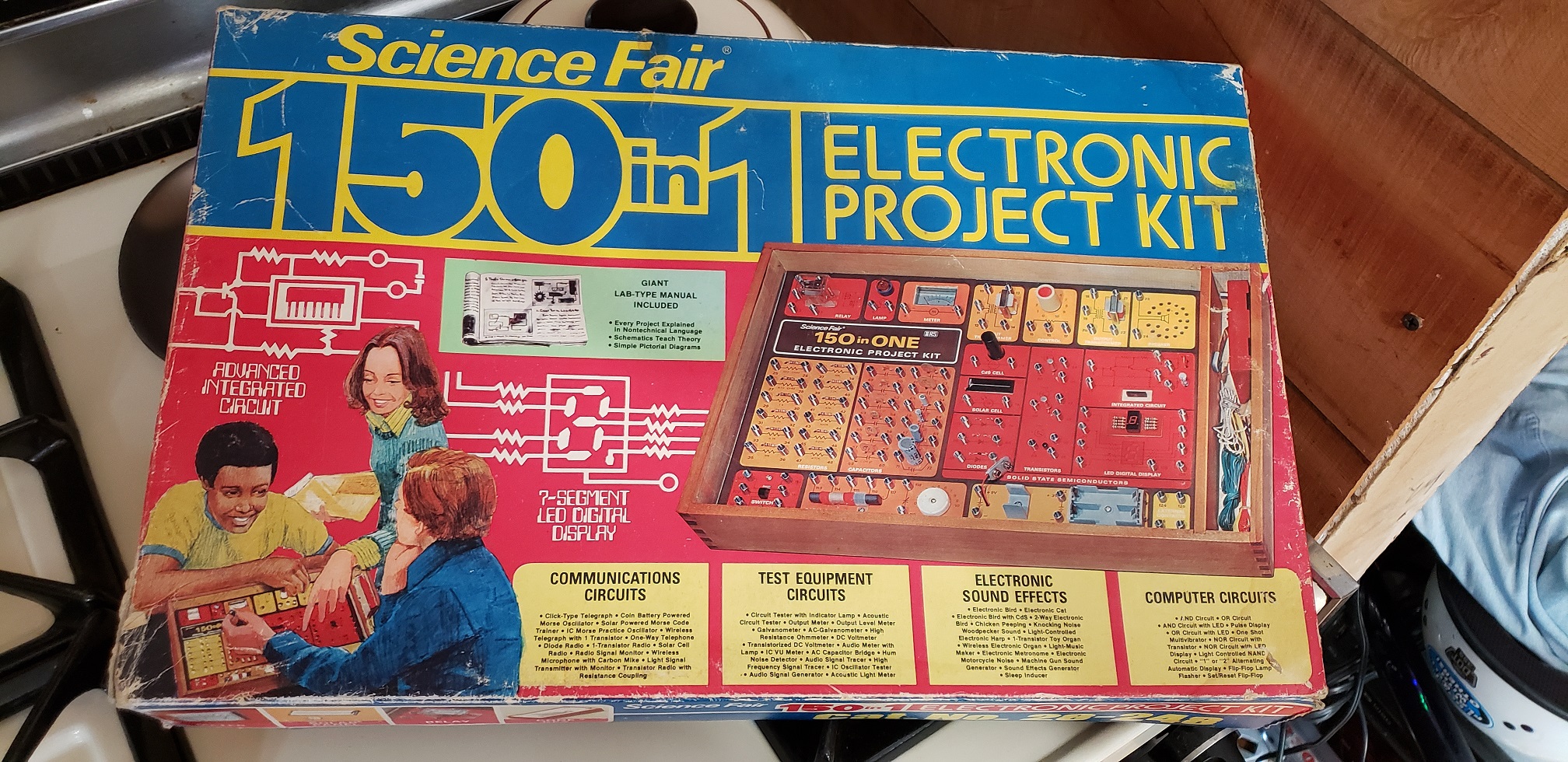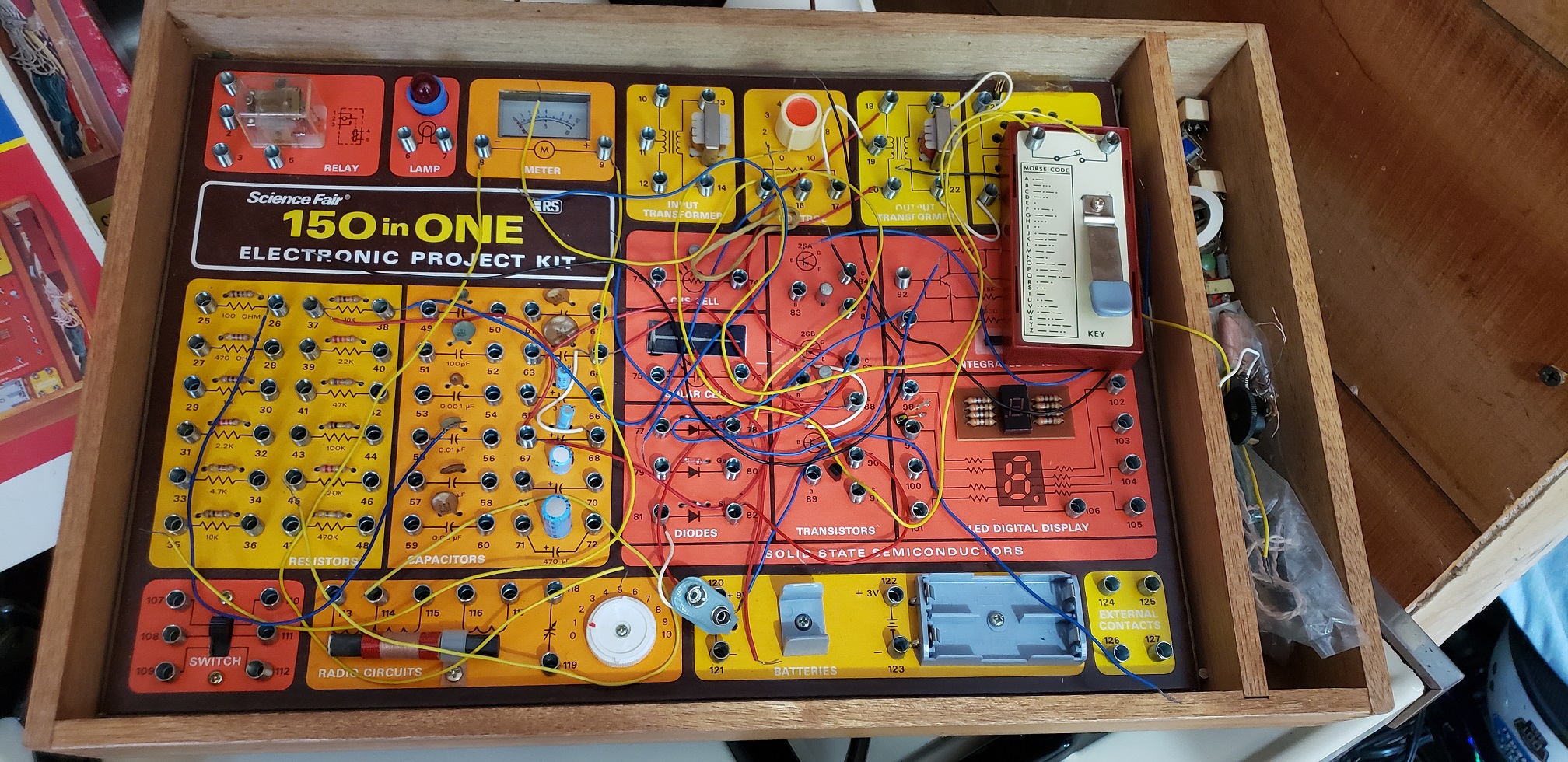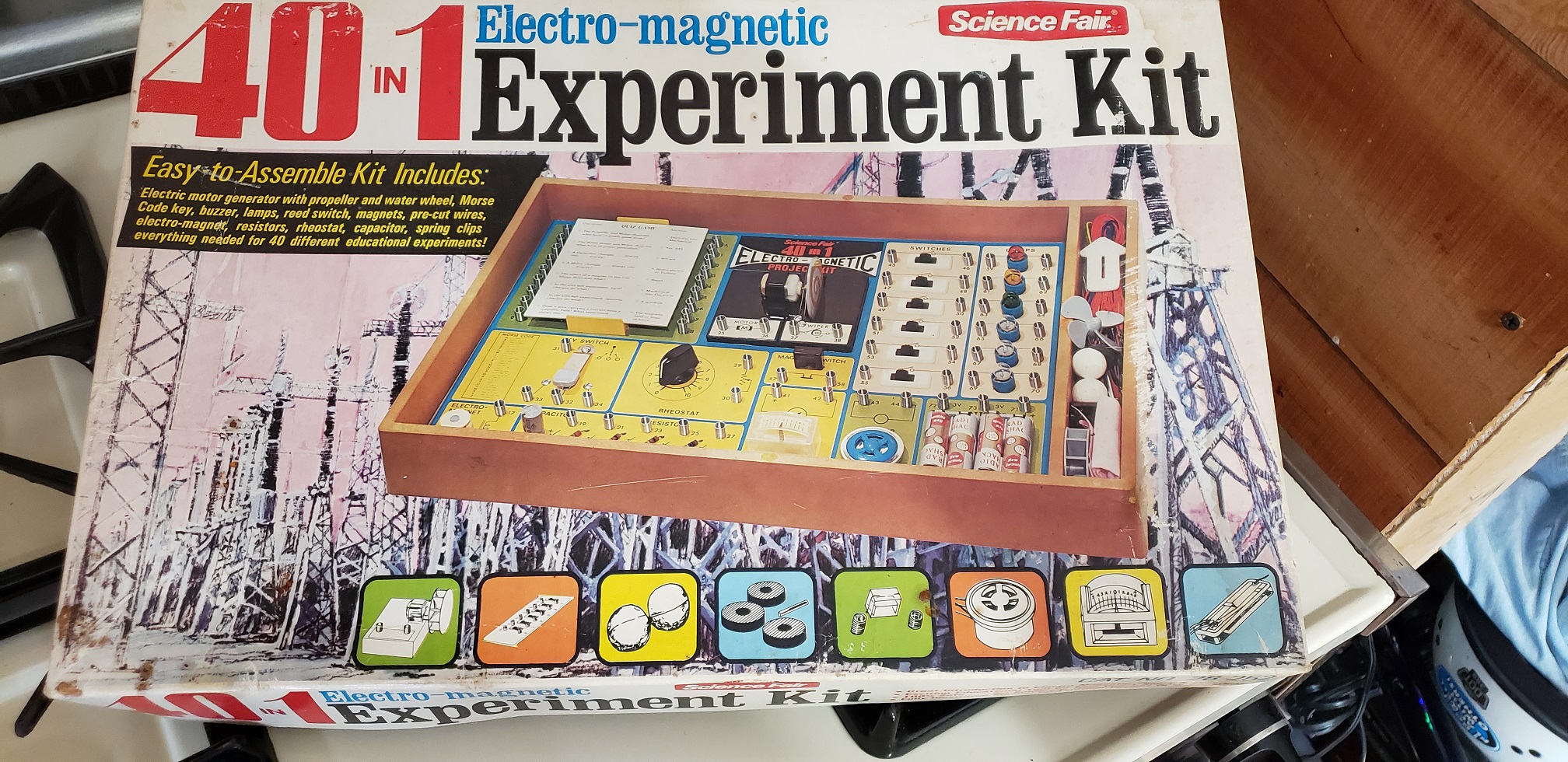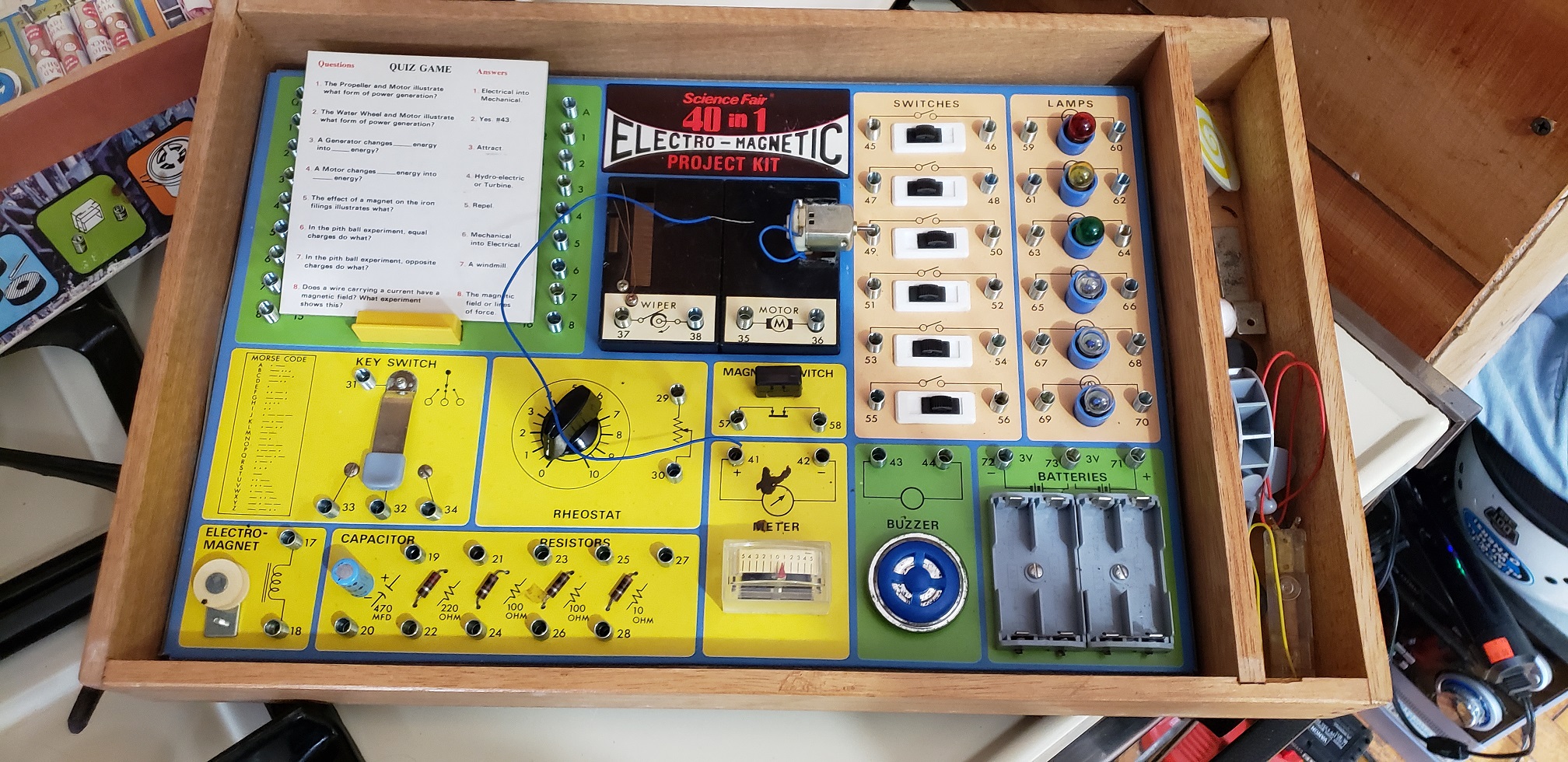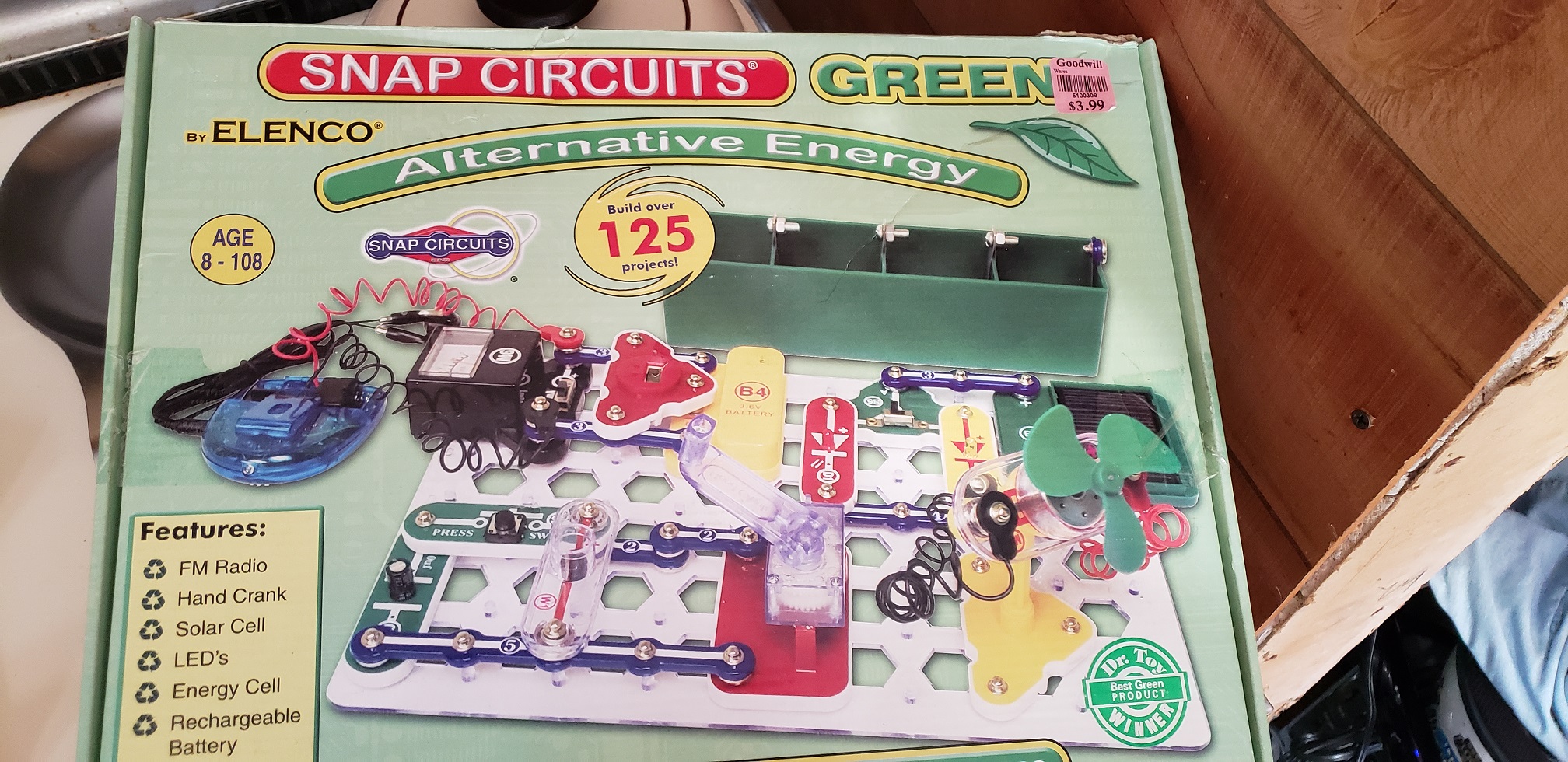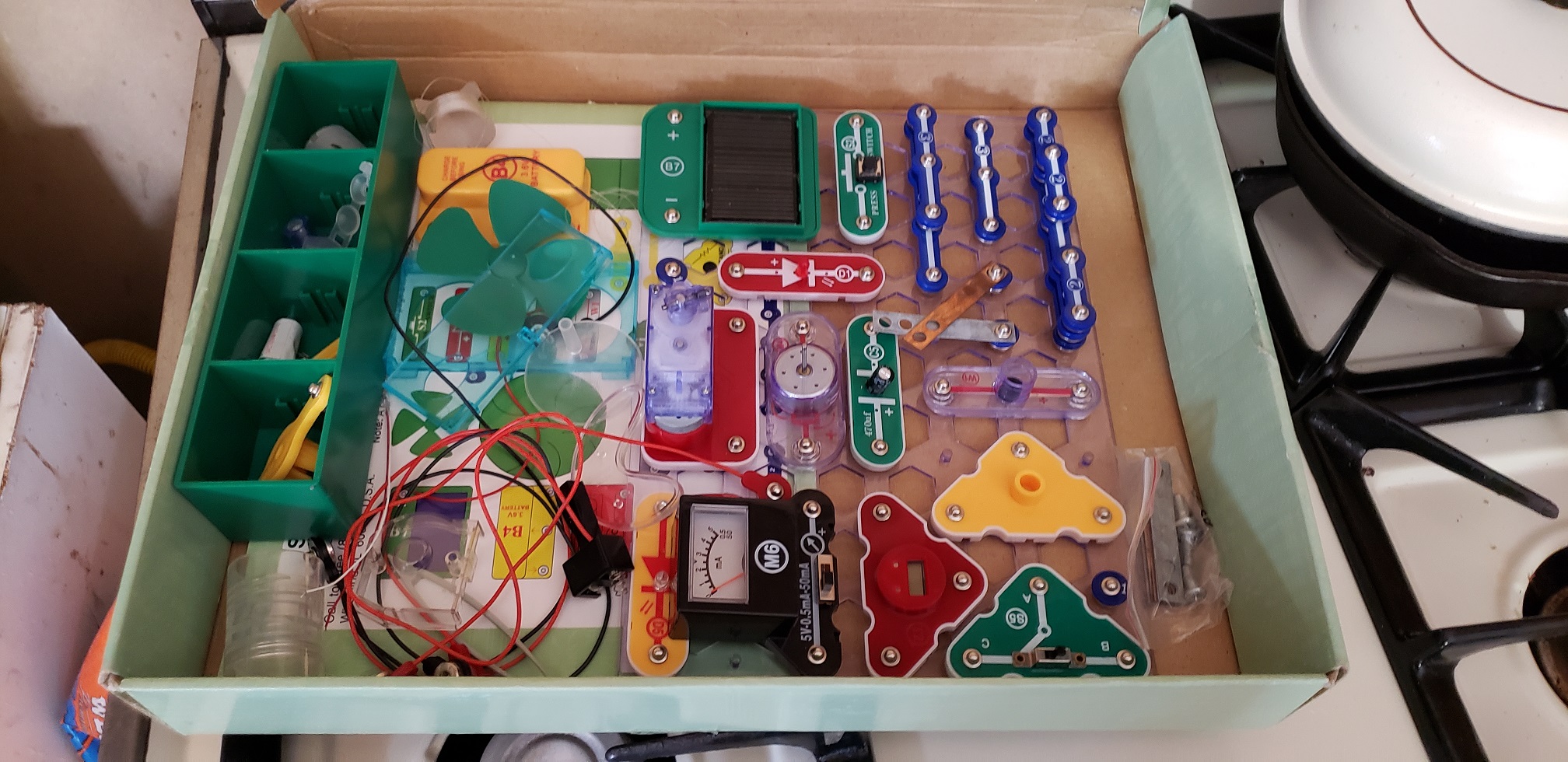-
Welcome to Autism Forums, a friendly forum to discuss Aspergers Syndrome, Autism, High Functioning Autism and related conditions.
Your voice is missing! You will need to register to get access to the following site features:- Reply to discussions and create your own threads.
- Our modern chat room. No add-ons or extensions required, just login and start chatting!
- Private Member only forums for more serious discussions that you may wish to not have guests or search engines access to.
- Your very own blog. Write about anything you like on your own individual blog.
We hope to see you as a part of our community soon! Please also check us out @ https://www.twitter.com/aspiescentral
You are using an out of date browser. It may not display this or other websites correctly.
You should upgrade or use an alternative browser.
You should upgrade or use an alternative browser.
Electricity/Electronics, anyone?
- Thread starter Weezer
- Start date
Moi! Mainly Desktop PCs, don't really know jack about laptop/cellphone/tablet specs
I dabble in electronic repairs, kit builds and experiments.
There is so many inexpensive components and kits available out of China at the present it makes my head spin.
$.99 programmable FM radio receiver:
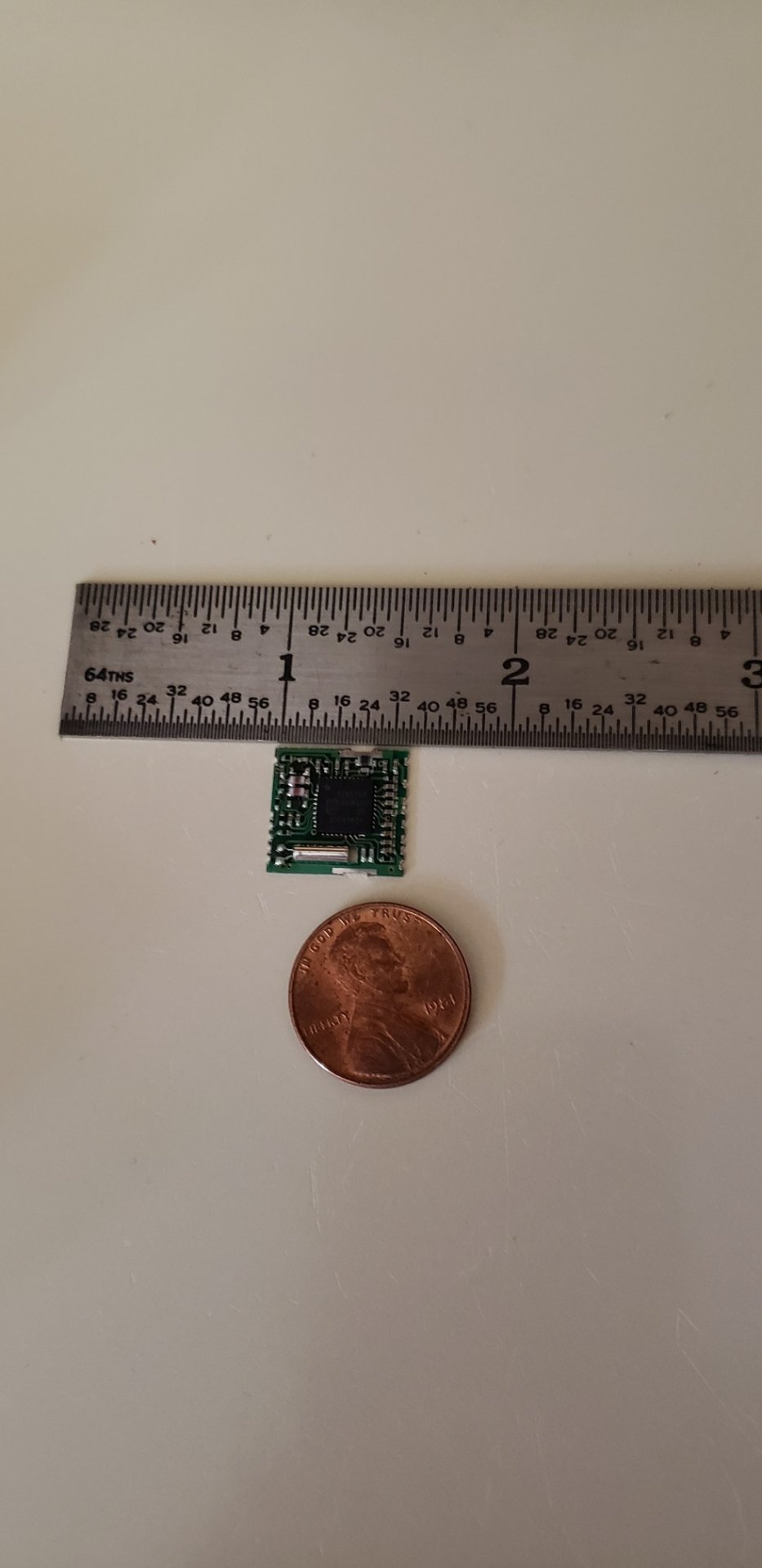
I've got my eyes on a few low wattage amp kits that are equally as tiny, and under $5
$4.99 music responsive mini Tesla coil kit:
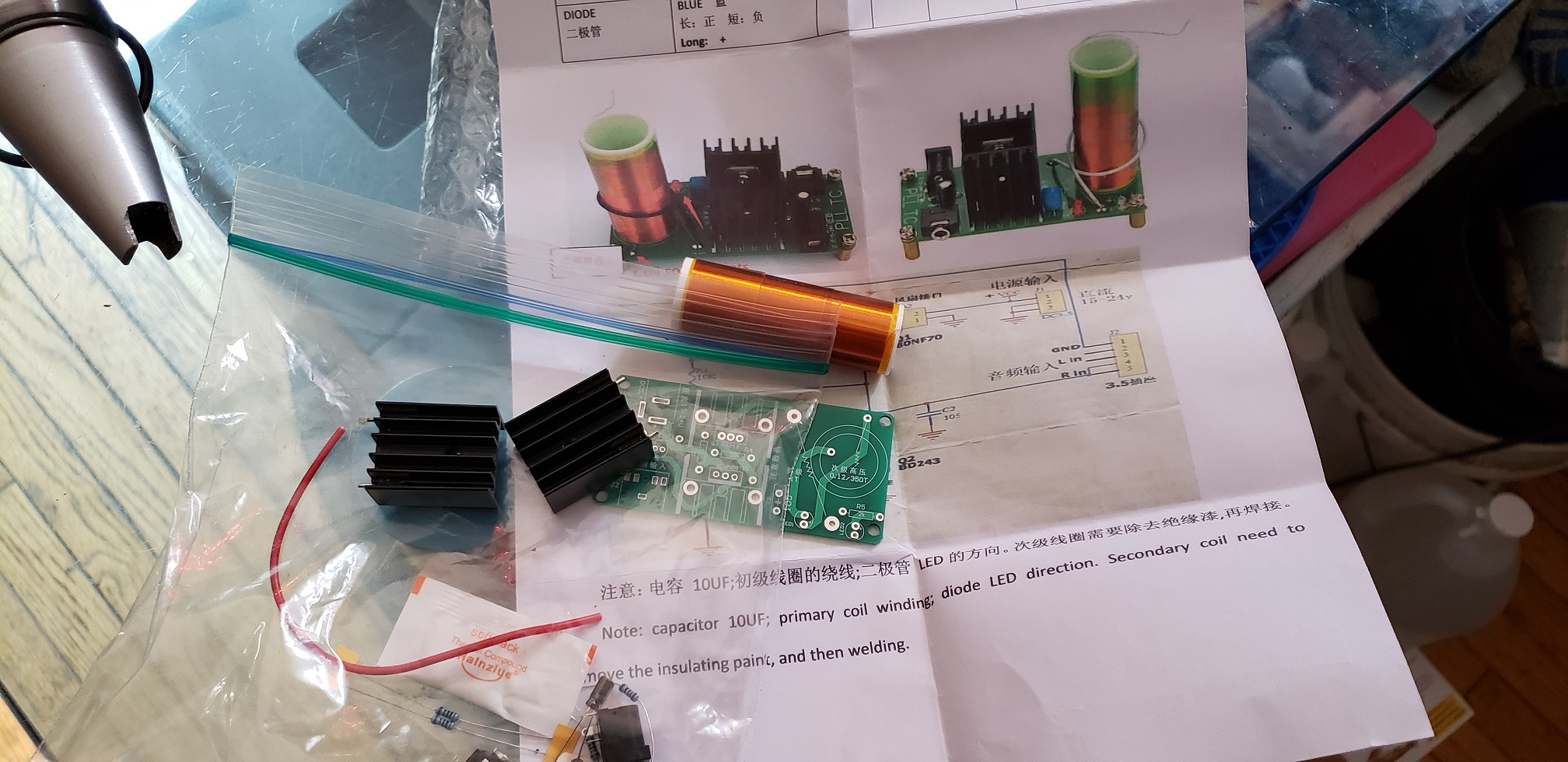
This can be built in an hour or so.
It's still way down on my list
I got several of these 10A 230V capable timer relay circuits I want to incorporate in my aquarium lighting circuits.
They were $3.99 a pop
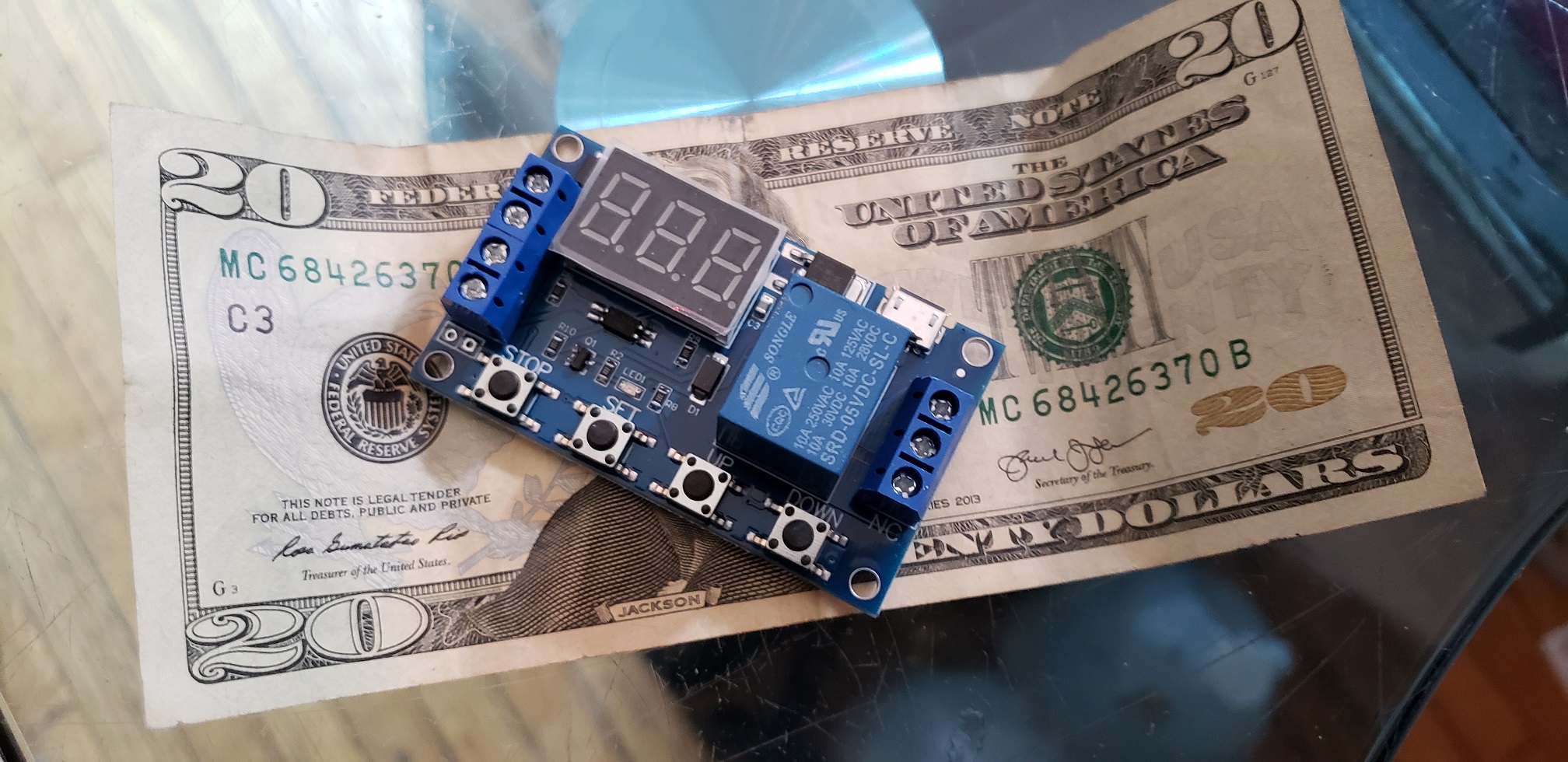
There is so many inexpensive components and kits available out of China at the present it makes my head spin.
$.99 programmable FM radio receiver:

I've got my eyes on a few low wattage amp kits that are equally as tiny, and under $5
$4.99 music responsive mini Tesla coil kit:

This can be built in an hour or so.
It's still way down on my list
I got several of these 10A 230V capable timer relay circuits I want to incorporate in my aquarium lighting circuits.
They were $3.99 a pop

I did electronics as my primary career in military but did not adopt it as an interest for some reason. I did like getting into the complexity of it all at times, like troubleshooting down to individual data bits. Very challenging but satisfying when you succeeded in locating and repairing the problem.
I saw a video online where a group of electrical engineering students from Australia go on a tour of the big electronics flea markets in Shenzhen, China. They show cavernous exhibit halls with small booths (maybe 5 meters long) side by side, and each one of those booths represents a component factory. One girl said she got lost and had to ask for directions. That's how big they are.
I love fixing old radios, homebrewing electronics stuff. Not very many kits out there anymore.
I love fixing old radios, homebrewing electronics stuff. Not very many kits out there anymore.
tlc
The Mackinac Bridge and U.P. is my happy place.
Other than working with car and house wiring and wiring guitars, I have done a few things. Built a mpg computer for several cars (found instructions online but customized it to my liking). Built a pellet stove controller with a thermostat, relays, and 555 timers. Fixed a headlights-on alarm with a transistor. Rebuilt my welder circuit board a couple times. Recently fixed the tachometer in my car, but followed an online writeup.
There are tons of other things I would like to do, and I'm getting better, but electronics is something that I have a very difficult time understanding. Especially when it comes to capacitors and things. I can already design and build mechanical things. If I could master the electrical end of it, I could make just about anything.
Computers... I was pretty good in the days of DOS and Windows 3.1. Since then, computer technology has passed me by and they irritate me. I just use them as a tool.
There are tons of other things I would like to do, and I'm getting better, but electronics is something that I have a very difficult time understanding. Especially when it comes to capacitors and things. I can already design and build mechanical things. If I could master the electrical end of it, I could make just about anything.
Computers... I was pretty good in the days of DOS and Windows 3.1. Since then, computer technology has passed me by and they irritate me. I just use them as a tool.
techteach
Captain Oblivious
I am a college electronics instructor; the more I learn the more I find I don't know, it is a huge field.
Several good books you could pick up if you want to learn:
For AC/DC "Electric Circuits Fundamentals" Thomas Floyd
For solid state Malvino's "Electronic Principles"
Digital "Digital Electronics" Roger Tokheim
These are all text books that start out at a pretty elementary level and assume you know nothing. But I would definitely start out with the AC/DC book. Without knowing the basic principles of current flow, resistance, capacitance and inductance Malvino might be hard to understand.
I really would not trust what people post on-line, many misconceptions out there. Drives me crazy
People have a lot more confidence than knowledge.
@FreeDiver Love your setup, looks like a lot of fun!
@Nitro I know, it is so freaking cool!
Several good books you could pick up if you want to learn:
For AC/DC "Electric Circuits Fundamentals" Thomas Floyd
For solid state Malvino's "Electronic Principles"
Digital "Digital Electronics" Roger Tokheim
These are all text books that start out at a pretty elementary level and assume you know nothing. But I would definitely start out with the AC/DC book. Without knowing the basic principles of current flow, resistance, capacitance and inductance Malvino might be hard to understand.
I really would not trust what people post on-line, many misconceptions out there. Drives me crazy
People have a lot more confidence than knowledge.
@FreeDiver Love your setup, looks like a lot of fun!
@Nitro I know, it is so freaking cool!
I really would not trust what people post on-line, many misconceptions out there. Drives me crazy
People have a lot more confidence than knowledge.
You wanna talk about misconceptions out there in the field of EE. I can tell you about one that just drives me crazy. Do you know the real reason why AC current won over DC current in the battle of the currents? If you ask any university professor (Including ones from MIT.) or any person that has a degree in EE. They will always tell you this "Ac current travel more efficiently over long distances because of the propagation effect. Much the same way how waves travel in a pond when you drop a rock in." which to me is udder BS. The real reason why AC won the battle of the currents is because it made possible the use of a device called a "Transformer". If you don't know what a transformer is. A transformer is to electricity what a gearbox or transmission is to mechanical, It's use to step-up and step-down voltages and amperages. Transformers allow voltages to be stepped-up really high so amperages can be lowered allowing for electricity to be carried longer distances with minimal losses. Transformers are also used to lower the voltages and increase amperages to make it safe to use in your house. AC current won the current war because you can't pass DC current through a transformer and the power grid needs transformers, not because for some propagation effect.
I liked working in the field,* too, but the components became too small for me. Even though I wasn't offended by the smell of solder fumes, they kept giving me sinus infections (and visible lung problems). I have since recovered from them.
My programmer training included programmable controllers, a specialty among electricians. I wish that I could have done more with those.
*Office equipment, cellular phones & biomedical. I have a patent in cellular when I worked at Motorola. (It is now owned by Google.)
My programmer training included programmable controllers, a specialty among electricians. I wish that I could have done more with those.
*Office equipment, cellular phones & biomedical. I have a patent in cellular when I worked at Motorola. (It is now owned by Google.)
@FreeDiver , I think that AC was adopted for the stated reason (relatively low currents). In that system, transformers became both necessary and advantageous, another reason to support AC's use.
I have over $10k invested in automotive scan tools and digital sampling oscilloscopes I used to sort out driveability, transmission and anti-lock braking systems issues on microprocessor controlled vehicles.
The shop enabled me to make the cash to dump back into my racing habits and a place to work on my own rides.
At one stage of that game, I had 4 employees including my office girl.
It was a pretty good cash cow and I actually enjoyed the challenges it presented.
My first scan tool was considered the best available at the time, the very popular Snapon MT2500 "brick" I bought in the early 90s.
It has live data streaming on top of the code reader ability.
Ford's EEC IV ECUs did not allow for live data streaming until way late into the game, so they were always very difficult to diagnose, more often then not requiring an o'scope to get a proper look at glitches that wouldn't hard flag a code.
The brick was about $2500 new and required yearly updates to keep it current. It only covered fuel control systems.
When OBDII was put in effect, I moved forward to an OTC Genisys setup that had a piggybacked multimeter/4 trace digital sampling oscilloscope as an option because the brick didn't handle the task as well on OBDII systems.
OBDI required manufacturer specific cabling and connectors, so the US gov't stepped in for a mandate of one universal tool with a universal connector in a specific location instead of anywhere the engineers felt it should be.
My brick has so many cables and connectors with it, they no longer all fit into the blow molded case designed for the tool.
The manufacturers walked right past the original mandate by providing what they were forced to, then requiring the purchase of "personality" keys to unlock their specific functions on a pay for play basis.
It returned to the same old same old once again.
My OTC Genisys was an expensive investment at the time, but quickly paid for itself by placing a one hour minimum charge for it's use.
Even though the OTC scan tools manufacturer functions are long outdated,I still have all of that stuff and believe the OTC tool is current to about 2002 for manufacturer specific functions.
The generic side of the OBDII scanners will function perfectly well on basic troubleshooting to this day as the protocol it uses was government mandated in 1996.
The shop enabled me to make the cash to dump back into my racing habits and a place to work on my own rides.
At one stage of that game, I had 4 employees including my office girl.
It was a pretty good cash cow and I actually enjoyed the challenges it presented.
My first scan tool was considered the best available at the time, the very popular Snapon MT2500 "brick" I bought in the early 90s.
It has live data streaming on top of the code reader ability.
Ford's EEC IV ECUs did not allow for live data streaming until way late into the game, so they were always very difficult to diagnose, more often then not requiring an o'scope to get a proper look at glitches that wouldn't hard flag a code.
The brick was about $2500 new and required yearly updates to keep it current. It only covered fuel control systems.
When OBDII was put in effect, I moved forward to an OTC Genisys setup that had a piggybacked multimeter/4 trace digital sampling oscilloscope as an option because the brick didn't handle the task as well on OBDII systems.
OBDI required manufacturer specific cabling and connectors, so the US gov't stepped in for a mandate of one universal tool with a universal connector in a specific location instead of anywhere the engineers felt it should be.
My brick has so many cables and connectors with it, they no longer all fit into the blow molded case designed for the tool.
The manufacturers walked right past the original mandate by providing what they were forced to, then requiring the purchase of "personality" keys to unlock their specific functions on a pay for play basis.
It returned to the same old same old once again.
My OTC Genisys was an expensive investment at the time, but quickly paid for itself by placing a one hour minimum charge for it's use.
Even though the OTC scan tools manufacturer functions are long outdated,I still have all of that stuff and believe the OTC tool is current to about 2002 for manufacturer specific functions.
The generic side of the OBDII scanners will function perfectly well on basic troubleshooting to this day as the protocol it uses was government mandated in 1996.
I have over $10k invested in automotive scan tools and digital sampling oscilloscopes I used to sort out driveability, transmission and anti-lock braking systems issues on microprocessor controlled vehicles.
I own about 4 scopes worth about $35K and If you're a tax payer. Then you probability helped paid about 98% of that bill. That LeCroy scope in the right of my picture, I got that in 2005 and had an MSRP of $18k. But I got it from a government auction for only $250. Except for the sample memory, that scope is loaded with all the hardware and software add-on you can get for it. If you got to ask? Yes, I do live in a government ran town. That's how I get access to these things.
The manufacturers walked right past the original mandate by providing what they were forced to, then requiring the purchase of "personality" keys to unlock their specific functions on a pay for play basis.
It returned to the same old same old once again.
My OTC Genisys was an expensive investment at the time, but quickly paid for itself by placing a one hour minimum charge for it's use.
Even though the OTC scan tools manufacturer functions are long outdated,I still have all of that stuff and believe the OTC tool is current to about 2002 for manufacturer specific functions.
The generic side of the OBDII scanners will function perfectly well on basic troubleshooting to this day as the protocol it uses was government mandated in 1996.
There are legitimate reasons for locking down some of the functions in the ODB interface. If you don't know what you're doing, you could cause damage to the engine by tweeking the wrong parameters. Plus, you can also reprogram new keys with this and this is sometime a weakness that can be exploited by car thieves.
I've hack the CAN BUS on modern cars and have discovered that I can control the engine throttle through the CAN BUS. Luckily, the butterfly valve in the throttle body is still mechanically linked to the accelerator petal which prevents the ECM computer from having %100 control of the engine.
Matthew Behnke
Well-Known Member
I used to like computers when I was much younger, I would often go on the computer and try codes, learn about hacking and the people who do it, along with trying to create my own programs or using ones to create some stuff.
But I decided to actually put into perspective that I would not want to prioritize on wanting to be a programmer, I just think that a lot of people want I.T. as a job just so they can be interested and have money in the future, but in reality you just sit in your room without much stimulation.
I think the most important thing is to travel or explore other parts of the world or know more about it, you will not enjoy it thinking programming equals money, I am not saying I don't like computers, I still kind of like them, but I wouldn't prioritize money or having a career because it is not always happiness.
Think about it, once your older and on the spectrum, you might have computers as a job, some autistic people dream about having a job out of it but what they haven't really thought of is the importance of life over everything else.
Your not always gonna enjoy having money programming and having a good job, try to find other places in the world instead of lying around in your own, you might find more people to have experiences with and may discover beyond your own world.
But I decided to actually put into perspective that I would not want to prioritize on wanting to be a programmer, I just think that a lot of people want I.T. as a job just so they can be interested and have money in the future, but in reality you just sit in your room without much stimulation.
I think the most important thing is to travel or explore other parts of the world or know more about it, you will not enjoy it thinking programming equals money, I am not saying I don't like computers, I still kind of like them, but I wouldn't prioritize money or having a career because it is not always happiness.
Think about it, once your older and on the spectrum, you might have computers as a job, some autistic people dream about having a job out of it but what they haven't really thought of is the importance of life over everything else.
Your not always gonna enjoy having money programming and having a good job, try to find other places in the world instead of lying around in your own, you might find more people to have experiences with and may discover beyond your own world.
New Threads
-
-
-
-
-
-
-
-
Presenting on ABC News / CW News in Iowa on Special Needs Non Profit Resources to Augment Access to Air Travel
- Started by TravelingWiki
- Replies: 0
-
-

